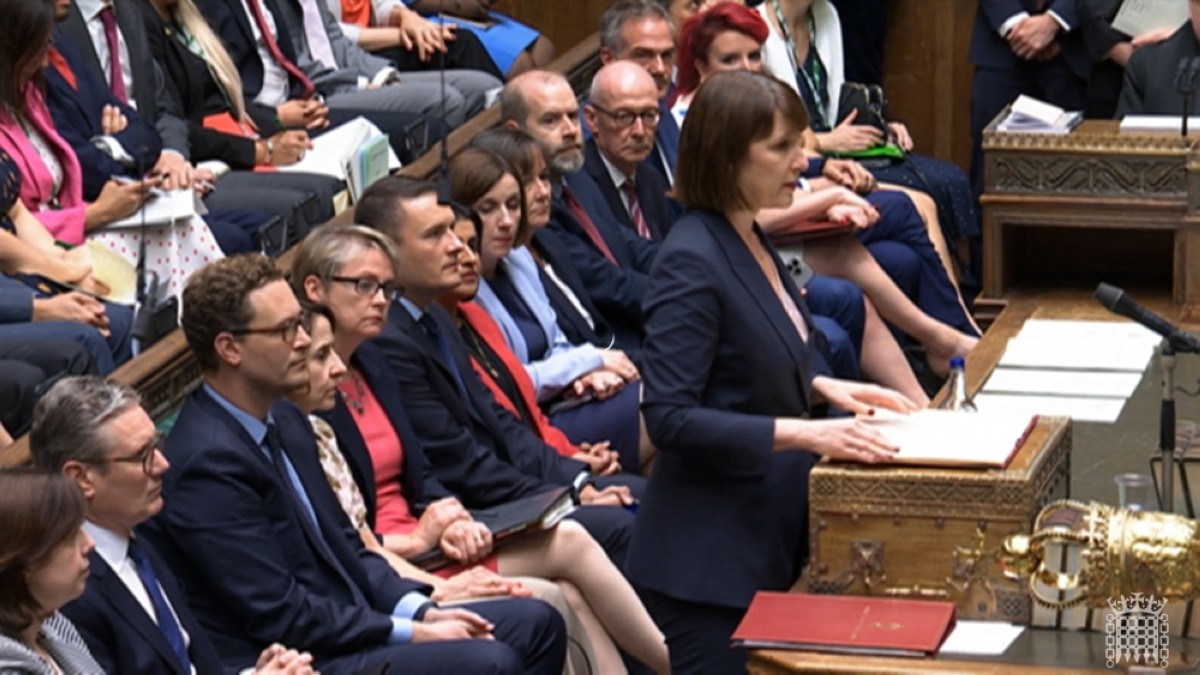‘Some way to go’ to tame inflation
BERLIN: A European Central Bank board member warned the fight to bring consumer prices under control in the euro-zone was not over, despite a recent slowdown in inflation.

FRANKFURT: The headquarters of the European Central Bank (ECB) are pictured on the banks of the river Main in Frankfurt am Main, western Germany.- AFP.
“We still have some way to go and we will see how difficult the famous last mile will be,” Germany’s Isabel Schnabel said in an interview published on the ECB’s website. The Frankfurt-based institution even believes inflation “may pick up again temporarily in the near term”, Schnabel said.
The ECB “will only be satisfied if inflation falls sustainably” to its target of two percent, Schnabel said, adding that “we do not have any intention of adjusting our inflation target”. Inflation slowed faster than expected in November to a two-year low of 2.4 percent, after peaking at around 10 percent last year. But the ECB warned the fight was not over as it froze borrowing costs for a second consecutive time in its final meeting of the year on December 14.
The pause left the benchmark deposit rate at a record high of four percent, following a historic streak of hikes to tame runaway prices. Schnabel also warned that there was little hope of consumer prices falling in the near future. “The prices are clearly higher than before the pandemic, and monetary policy cannot roll back that increase,” Schnabel said. “People would not be better off if we plunged the economy into years of deep recession just to bring the prices back to their old levels,” she added.
Italy’s ‘small’ budget
Meanwhile, Italy’s Senate adopted a budget for 2024 that critics say will do little to boost growth in the euro-zone’s third largest economy. Prime Minister Giorgia Meloni has described the budget as “realistic” for a country hit hard by the coronavirus pandemic and rampant inflation. But critics have slammed the measures—worth around 24 billion euros ($25.3 billion) in tax cuts and increased spending—as underwhelming.
“It’s a small budget because essentially there were no resources,” said analyst Wolfango Piccoli from Teneo political risk consultancy. “There is nothing for investment (and) it’s not a budget for growth,” he said. The money is largely aimed at supporting households, workers and businesses, including income tax cuts for salaries up to 35,000 euros which will only last through 2024.
Around five billion euros is earmarked for public sector salary increases and three billion euros goes to the national health service. Carlo Bonomi, the head of Italy’s main business lobby group, slammed the “substantial absence of support for private investment and a strategy aimed at growth and competitiveness”. Analysts have voiced concern that the budget is based on a government growth projection which is much more optimistic than official institutions, from the European Commission to the International Monetary Fund and the European Central Bank.
Rome is expecting the economy to expand by 0.8 percent this year and 1.2 percent next year. Italy’s National Statistics Agency has forecast growth of just 0.7 percent for both years. The central bank has a similar projection for this year but sees a 0.6 percent expansion next year. The government says it will raise some 21 billion euros between 2024 and 2026 through privatizations to help reduce the public debt, valued at 144 percent of GDP—the highest ratio in the euro-zone after Greece.
It has also included a spending review in the budget. “They have tried to create a bit more room for manoeuver by putting forward this idea of privatization”, but it is a “largely unrealistic” goal in light of Italy’s past record on privatization, Piccoli said. And Rome’s spending reviews “never yield any significant amount of money”, he added. The budget now goes to the lower house of parliament, which will vote at the end of next week. It is expected to be adopted easily, as the parties in Meloni’s ruling coalition have the majority. — AFP.











